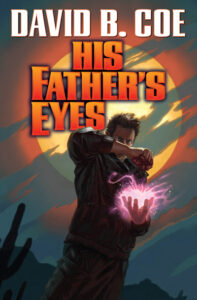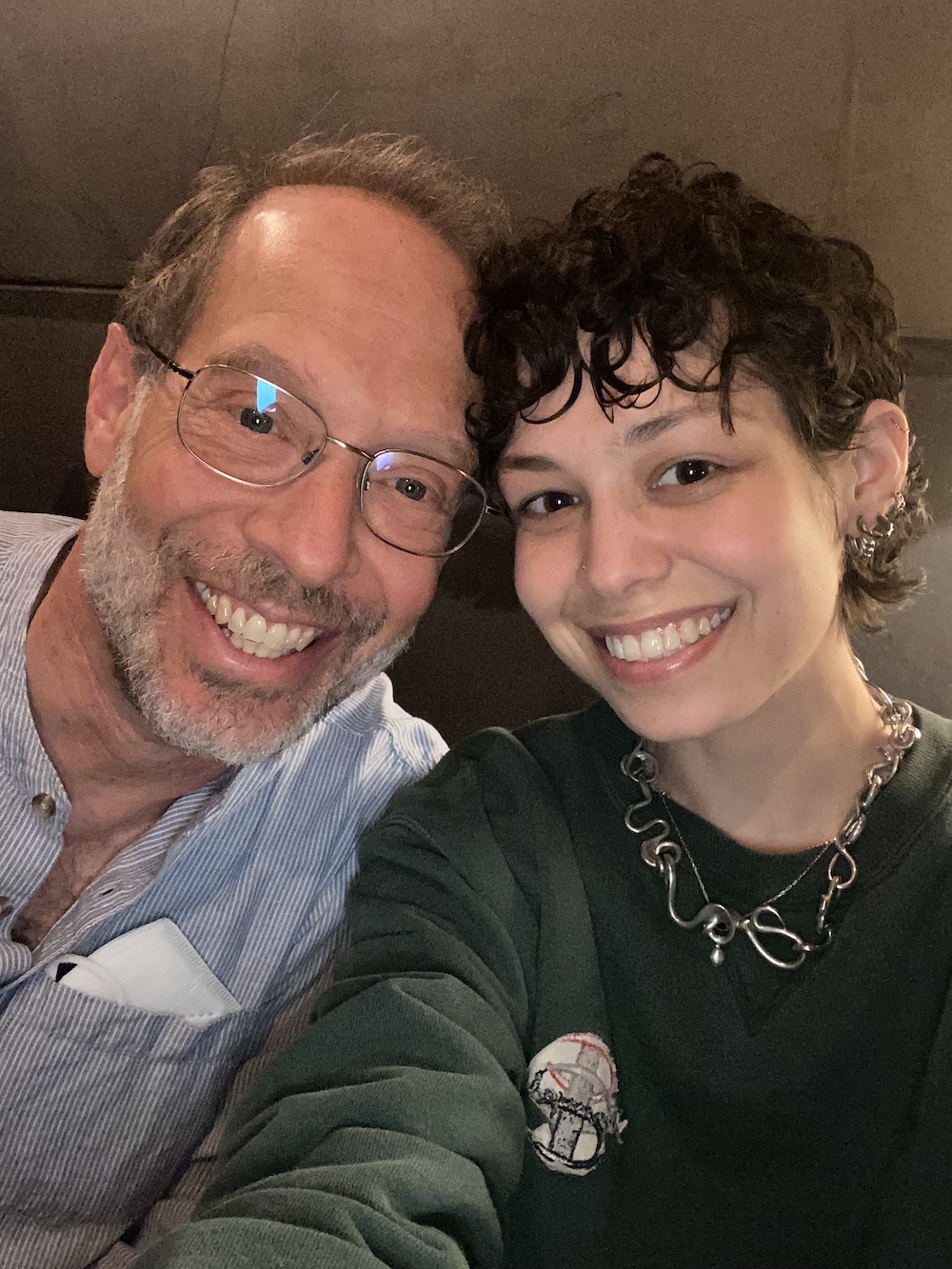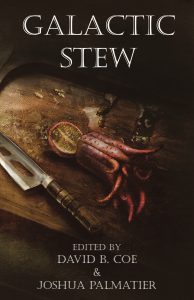This week, I finished the first draft of the third and final book in my new project, a contemporary Celtic urban fantasy called The Chalice Wars. I have a lot to do with this newest manuscript still — I’ll discuss that in greater length in next week’s Professional Wednesday post.
But for today, as a way of celebrating the completion of this latest novel (which will be my 30th when it finds its way to print, later this year or — more likely — early in 2023), I thought I would share with you a bit of book one in the series. This is actually chapter 2 of The Chalice Wars: Stone
I expect it will be out in the next few months. Again, late this year or early next. For now, here’s a peek.
Two drops of blood. One on the bottom stair, glistening on brick, red on red. The other on the cement landing by the front door.
The drops were small; she might easily have missed them, walked past and into the house without noticing. But having seen, she couldn’t look away, and she couldn’t take another step.
She stood rooted to the walkway, empty reusable grocery bags tucked under one arm, an oversized bottle of Australian Shiraz in the other hand, her bag slung over her shoulder. And she stared at the blood.
Alistar has cut himself, said a voice in her head. He’s cut himself while working in that damn garden of his.
To which a second voice—Alistar’s, usually so calm and reassuring—said, No, he’s dead. You need to get the hell out of here.
Blood, brick, the geraniums in the ceramic planters Alistar had placed on either side of the stairs. So much red today.
The front door was open behind the screen. Burl should have been there watching for her, tail wagging, tongue lolling happily. Or he might have been in the back garden with Alistar, in which case he should have come bounding around the corner of the house as soon as she pulled up.
She reached for the dog with her mind, with her magic. Nothing. This is what she felt at the store. This was what made her rush through the rest of her shopping, what drove her to flee the grocery store, leaving her half-full cart beside the check-out line. The sensation had been abrupt, final, like someone placed a wall between them.
Like someone had killed her conduit.
On that thought, she was moving again. Not inside, but to the back, the sweat on her palm making the bottle slick and unwieldy. At the corner of the house, she let the canvas bags drop to the ground. She kept hold of the wine; a weapon now.
As soon as she stepped into the backyard, she spotted Alistar.
He lay in the dirt between the slate patio and his bed of gladiolus. Even from a distance, she could see the blood that stained the front of his shirt, like a fan-shaped bib. She faltered a step, a choked sob escaping her, her stomach seizing into a fist. An instant later, she was at his side, knees cushioned in the rich black soil. A faint stench hung in the air, cloying, foul, the smell of rot, of disease, of death.
Alistar’s throat had been cut, ear to ear, the gash a ghoulish grin on his neck. His eyes, pale blue and once electric with wit and mischief and passion, were fixed on a clear sky, unseeing, lifeless. His midsection . . . . She couldn’t even look at that. Whatever killed him had feasted as well. She wanted to believe they waited until he was dead, but she knew better. A tear rolled down her cheek and she swiped at it. It landed like a raindrop on the slate, darkening the stone just beside Alistar’s hand.
His bloodied hand. One crimson-stained finger appeared to point at a dark scrawl on the patio. Letters in blood. A single word. Or part of one. “S-L-U-A—”
Not much, but enough.
“Oh, Alistar,” she whispered. But her heart hammered.
Now she understood where that terrible smell had come from.
Sluagh. Shadow demons. Winged, enormous, utterly without mercy. Fomhoire assassins.
Get the hell out of here!
His voice again, urgent and compelling.
First, though, she had to find Burl.
If a Sluagh did this, or more likely a trio of them—the old powers did things in threes or fours—Burl would be dead, too. They would sense the magic in him and assume he had been Alistar’s conduit. Forced to guess, she would say the poor dog was dead before Alistar knew what was coming.
She remained beside him for another moment, trying to reconcile the wreckage before her with her memories of the man she had loved. She never should have gone out. She was the one with a conduit, the one who had been maintaining their part of the network since the death of Alistar’s conduit two months ago. She should have stayed here and sent Alistar to the store. But he was so happy in his garden, and she was gone for such a short while.
It’s not your fault, and this is no time for blame. Go.
Leaving him seemed wrong. He deserved . . . more.
No. You have to go. And you have to take it with you.
She stood, gripped the wine bottle once more, and strode to the back door. It was open, of course. Burl lay sprawled on the kitchen tiles, his silky white fur matted with blood, his water dish overturned, the floor covered with a thin, dark pink mixture.
Tears again, a stream of them this time. How could she cry so for her dog, when she’d shed barely a tear for Alistar?
He wasn’t just a dog.
She felt more than grief. The stench of the Sluagh was thick in here. She gagged, biting back against the bile rising in her throat, and the terror clawing at her chest. Without a conduit, she was vulnerable, all but defenseless. Sidhe or no, she couldn’t cast much of anything without a source for the magic.
She swallowed hard, wiped her eyes again. Burl deserved to be buried, too. Losing either one of them would have been bad enough. But both?
She stepped over the dog, avoiding the stained water, and halted at the door to the dining room. Drops of blood trailed away from the kitchen, through the dining room, and into the living room. Toward the front door. She guessed they had come in from the front, killed the dog, gone back out the same way, and snuck up on Alistar from behind. Then they returned to the house and ransacked it, breaking and tearing nearly everything of value. Sluagh wouldn’t worry about leaving behind a trail of destruction, much less a splattering of blood. They were hunters, nothing more or less. They worried about the kill and whatever they’d been sent to find.
At last, terror kicked in. She hurried to the bedroom, knowing she couldn’t take much. There wasn’t time, and the Sluagh hadn’t left much intact. Clothes, photos, papers, books, music. Most of the furniture was Alistar’s and what belonged to her wouldn’t fit in her car.
Alistar had insisted they keep boxes in the attic and packing tape in the utility drawer, just in case there came a time when they would need to leave without delay. He had also paid the rent on a month-to-month basis; no lease.
“I want to be able to leave this place on an hour’s notice, and never look back,” he often said.
Hearing the words in her head once more, she muttered, “You were supposed to come with me, old man.”
She was packed in less than two hours, and had the car loaded before nightfall. But she waited until dusk to return to the garden for the one thing she couldn’t leave behind.
When it was dark enough, she went to the garage and retrieved the ancient wooden crate Alistar stored there. It must have weighed ten pounds empty. She carried it to the farthest end of his garden, took a spade from his shed, and removed the stone from its spot in the dirt.
“It should be packed in soil,” he’d told her at least two or three times. “And the crate should be nailed shut.”
On one occasion she laughed at him. “Why tell me all of this? You’ll be the one packing it. You never let me near that thing.”
He’d stared back at her, silent and grave and beautiful in the dying light of an autumn afternoon. Had he known it would come to this? Had he seen it?
She stared at the gaping hole she’d left in the dirt. They had hosted parties at the house, sat with friends on the patio, sipping wine and chatting deep into the night. No one ever noticed the stone, which was just as it had to be.
There was nothing striking about it. It was vaguely round, about the size of a honeydew melon, dull grey, with a few gleaming specs of mica and quartz. And with the spells she and Alistar had cast on it, its power was dampened. She shivered, as if someone ran a magical finger down her spine. The spells. They had cast them together, so that if one of them died, the spells would survive. He had seen this day coming.
Bastard. Brilliant bastard. More tears streamed down her cheeks. She went back to work.
The stone fit perfectly in the crate. She had created a nest of soil for it, leaving just enough room to sprinkle more dirt around it and over it. She sealed the crate, then retrieved the other stone from behind the shed. It looked much like the first; same color, shape, and size. She put it where Alistar’s stone had been, smoothed the dirt surrounding it.
She stood, lifted the crate with a grunted “Sonofabitch!” and staggered out to the car. There she wedged it into a space she had left unfilled in the far corner of the rear hatch. As an afterthought, she threw in the shovel, too. It had been Alistar’s, just like everything else in the garden shed. She slung coats and a few dresses over the stone, arranging and then rearranging until it all looked natural, like she was a slob, rather than someone trying to hide something.
When everything else was done, she went to the basement for the last of Alistar’s precautions. Somehow he had managed to buy or steal license plates from half a dozen states. On their own, the plates would have been of limited use, but he had also arranged to have new registration stickers sent each January from the state DMVs. She didn’t know how he did it, and he never bothered to tell her; it was just Alistar being Alistar. But she was smart enough—or maybe scared enough—to put a fresh set of plates on her car, and to take the others with her.
From now on, she would be from Maryland. Until she needed to be from somewhere else.
She tossed the old plates and the wrench into the back, and closed the hatch.
She needed to let the others know. Their part of the network was open now, exposed. In recent months she had sensed gaps, weaknesses in their web of magic that the Fomhoire might exploit. Now it was worse, and without her conduit there was no easy way for her to send a warning. All she could do was run, and hope she’d find an opportunity to tell them later.
It didn’t feel right. Alistar still lay in the garden, Burl in the kitchen.
Alistar had long been a prominent figure in the Sidhe community, which made her one as well. They had helped establish the network monitoring this part of the Sidhe world for Fomhoire incursions. That was reason enough for Fomhoire and their Sluagh friends to want Alistar and her dead. Not that they needed reasons to kill.
She sensed, though, that the Fomhoire were also after the stone, and she didn’t understand why. Alistar had never explained to her the stone’s significance. For years she had wanted him to tell her, but always he refused. Now she needed to know, and he was gone.
“That part wasn’t so brilliant, old man,” she whispered, peering through tears at the darkened house.
You’ll figure it out. Now, go!
She climbed into the car, and with one last glance toward her home, toward the gardens, she drove away.
 One idea is to write my next Thieftaker novel, either in the form of a trio of novellas, like I did with The Loyalist Witch, or as a simple novel. In the Thieftaker novel timeline, the Revolutionary War hasn’t even started yet. There is lots and lots more I can do with Ethan and Kannice and Sephira.
One idea is to write my next Thieftaker novel, either in the form of a trio of novellas, like I did with The Loyalist Witch, or as a simple novel. In the Thieftaker novel timeline, the Revolutionary War hasn’t even started yet. There is lots and lots more I can do with Ethan and Kannice and Sephira.
 I want to write at least one more Radiants book. Actually, I would like to write several more. Radiants and Invasives are, to my mind, the two best books I’ve written to date, and I still would love to see these books gain come commercial traction so that I can justify writing more of them.
I want to write at least one more Radiants book. Actually, I would like to write several more. Radiants and Invasives are, to my mind, the two best books I’ve written to date, and I still would love to see these books gain come commercial traction so that I can justify writing more of them.








 From Virginia Beach, I went to Brooklyn, where I spent two evenings with my older daughter. She looks beautiful, seems great, has a ton of energy, and was her normal, playful, thoughtful, intelligent, insightful, slightly acerbic self. Seeing her, having such amazing time with her, was reassuring to say the least.
From Virginia Beach, I went to Brooklyn, where I spent two evenings with my older daughter. She looks beautiful, seems great, has a ton of energy, and was her normal, playful, thoughtful, intelligent, insightful, slightly acerbic self. Seeing her, having such amazing time with her, was reassuring to say the least. This will be the fifth anthology I have edited for ZNB (after
This will be the fifth anthology I have edited for ZNB (after